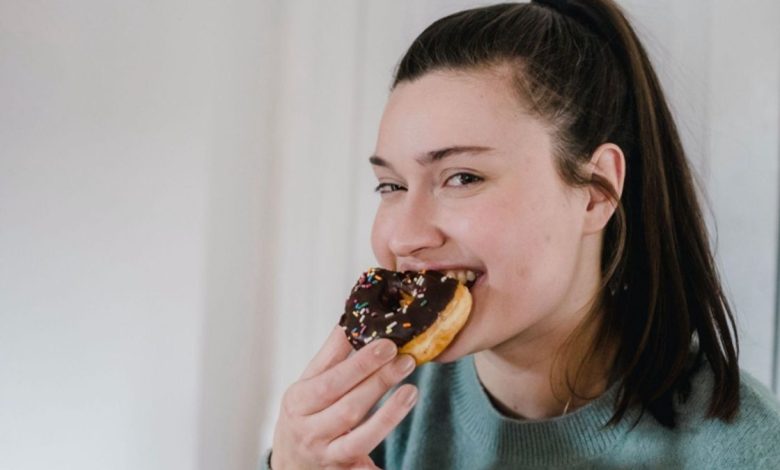How to Stop Food Cravings and Lead a Healthier Lifestyle?

Whether you’re a dieter trying to keep your weight in check or just enjoy eating a healthy diet, food cravings can be a frustrating distraction. Sure, you will enjoy the few minutes of satisfaction but constantly giving in to this intense desire for certain foods only strays you further from your goals.
You need to learn how to stop food cravings, how to be in control, and how to identify things that trigger your specific yearnings. This article will help you build a strong defense against the alluring ways of food cravings and practice mindful eating so you’re not compromising your health or hurting your weight loss journey.
How to Stop Food Cravings?
Because food cravings can cause you to consume foods that have adverse effects on your health, it’s important that you develop tactics to handle them, especially if you’re trying to lose weight. Don’t know where to start? Try these simple strategies shared by Midss.
Eat Plenty of Fiber and Protein
Fiber takes up a huge space in your stomach without producing calories, and protein inhibits the production of the hunger hormone. Ingesting healthy snacks and foods with high amounts of fiber and protein can help you stay fuller for longer periods. And when your stomach is full, you are less likely to overeat or crave foods that are unhealthy.
Drink a Glass of Water
Sometimes, people can’t tell the signs of dehydration from those of hunger or food cravings. So, before grabbing that bag of chips from the pantry, try drinking water. A single glass may be just what you need to beat your cravings.
Keep Triggering Foods Out of Reach
Completely banning junk food at home is probably unrealistic, especially if you’re the only weight watcher in the house. But if tempting food is stored in a place that requires some effort to reach, you will be able to better reduce cravings.
Think About Your Goals
Trying to lose some pounds? Maybe that bowl of M&Ms will push your calories too high! It’s called considering the consequences, and when you do this enough, you teach your brain to focus more on the negative side of unhealthy foods every time you experience a craving. This helps you get away from thoughts of eating junk food, increasing your chances of achieving your weight loss goals.
Distract Yourself
In most cases, cravings will go away after a few minutes. Meanwhile, try to do something that distracts your mind from food. Watch a movie, read a book, complete a puzzle, or go for a walk. The more you can engage your brain in other things, the more you are likely to put off your cravings.
Chew a Gum
Next time a craving comes on, grab a piece of gum and pop it in your mouth. Your brain will think you’re eating something and forget your initial craving. It is best to go with sugarless gums, as they have fewer calories. They will help curb cravings for sweet snacks without adding extra calories to your body.
Factors That Affect Food Cravings
People get food cravings for various reasons; it could be from seeing an advert for the food in question, smelling the food, or sometimes just out of nowhere. Below are some factors that have been found to contribute to food cravings in most people.
Stress and Anxiety
Chronic stress and anxiety are linked to a higher production of cortisol, the hormone that increases appetite, particularly for sweet carbs. When you’re feeling sad, you eat because it gives you pleasure and makes you forget about your stress triggers. It also promotes the production of endogenous cannabinoid lipid that naturally improves your mood.
Low Blood Sugar
Your body needs energy to fuel various activities. This energy is obtained from the food you eat, meaning if you’re not eating enough, your blood sugar levels will drop, triggering a food craving. This craving will often be for foods with high sugar content to replenish your energy reservoir.
Hormonal Imbalance
Imbalances of various hormones can lead to food cravings. Women, especially those who are menstruating, can have intense yearnings for high-carb, sugary, or salty foods during certain phases of their menstrual cycle, influenced by estrogen and progesterone hormones. The levels of these hormones peak (and sometimes even go off balance) during the cycle, a phenomenon that has been found to create a craving for certain foods in women.
Insufficient Sleep
When you sleep, your body’s energy is renewed. Poor sleep quality can trigger sugar cravings to keep up energy levels. A lack of sleep can also raise cortisol levels, increasing your appetite and food intake.
The Bottom Line
We all have cravings for unhealthy foods from time to time. While we should all be able to enjoy our food of choice without being judged or feeling guilty, giving in to our cravings takes us further and further away from our health and wellness goals. It’s, therefore, important that we take control of our eating habits so we can effectively conquer our food cravings and live healthier, happier life.



